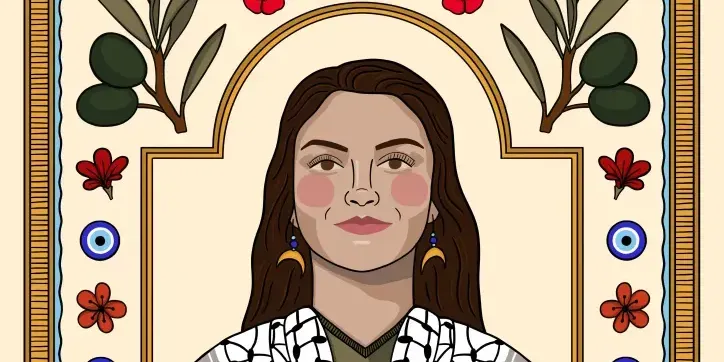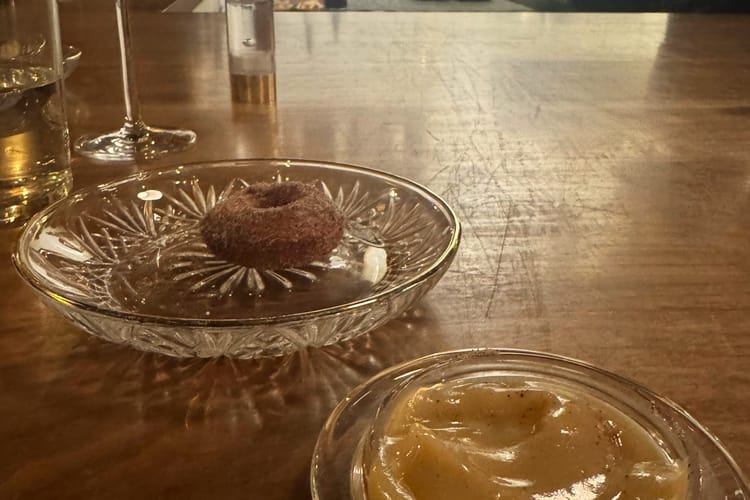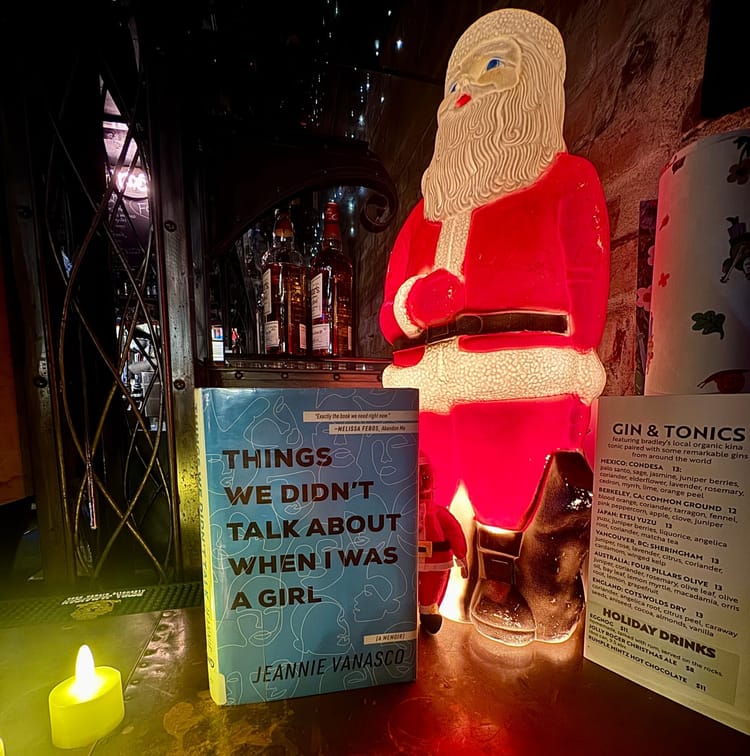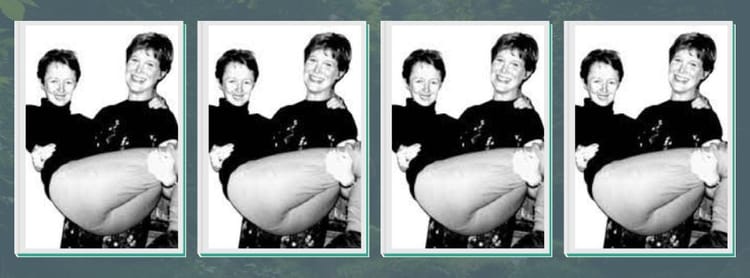you paid for this: my neighbor is dead

My neighbor died last September.
We weren't best friends; we weren't actually friends at all, but she was my neighbor. Probably my friendliest neighbor. We live in townhouses, so there's an implied community aspect built into living where we do. Where she did. We share garbage, compost, and recycling. We share frustration with people who park in inconvenient spots. We pay HOA dues, I think, or at least our partners did. Hers probably still does. But she's dead now.
My neighbor was murdered while peacefully protesting illegal settlements in the occupied west bank in gaza. She was shot in the head by the israel defense forces near the Palestinian village of beita. After the israeli defense forces shot her, purposefully and directly, in her head, my neighbor lay bleeding under an olive tree until she died.
I remember a friend asking me how I felt after the October 7, 2024, attacks on gaza from israel; if I had a take or perspective. I didn't, honestly. Like many americans, I grew up knowing that Palestine and israel had Conflict, and it was Complicated, and it was Hard to Understand. My thoughts were generic. I'd embarrassingly never really thought about it past what I'd been told, that it's too complicated to understand. I believed that I knew next to nothing about it. But, to answer my friend's question, I let my gut lead and told her I was anti-government and pro-people not dying. One piece of clarity I've been given in trump's america is that I would never assume someone aligns with their government.
I'm not an expert. I'm not Palestinian or israeli or jewish or arab or anything but an american who was raised to believe Palestine and israel are really complicated, and volatile, and sensitive, and far, far from home.
But without knowing it, I already felt the way I felt before my neighbor was killed. I didn't need her death to teach me about Palestinian lives or how to think about this conflict. But what I have been given from the loss of Ayşenur Ezgi Eygi is humility, and closeness to a conflict my country has tried to convince me I don't understand.
Ayşenur was killed for peacefully protesting, and I don't get to see her beautiful, round, welcoming face anymore. I don't get to say hello to her or plan holiday decor for the front gates with her. I don't get to see her name pop up in the group chat or run into her greeting the neighbor cats. I don't get to see her and her husband holding hands. Now I have to see him alone, fighting for her legacy.
I wasn't home when I found out Ayşenur had been killed. I found out, threw up in an alleyway, drove a friend to the airport, and when I finally got home, I sat on the couch staring at the wall for hours. When I finally left the house again, I was furious at my neighborhood, at every business that was operating as usual, as if our neighbor hadn't just been murdered while peacefully protesting.
Most of the businesses in my community never said anything. Some of my neighbors never said anything. The university I attend, from which Ayşenur recently graduated, never said anything.
I wanted to say everything, but it didn't feel like my place, my argument, my issue, my family. She was just my neighbor, after all. I've struggled navigating loss even in my own blood family. When is grief your grief? Certainly not when your neighbor dies.
But what if your neighbor is dead because she cared more than you and most americans, and wanted to do something? Is that my grief? As an american? As a pro-Palestinian american? As Ayşenur's neighbor?
Not a day passes that I don't think of her.
Here are some books that will counteract your american public education.
Palestine in a World on Fire by Katherine Natanel and Ilan Pappé (2024)
Abolishing State Violence: A World Beyond Bombs, Borders, and Cages by Ray Acheson (2022)
They Called Me a Lioness: A Palestinian Girl's Fight for Freedom by Ahed Tamimi (2022)
Beyond Survival: Strategies and Stories from the Transformative Justice Movement by Leah Lakshmi Piepzna-Samarasinha and Ejeris Dixon (2020)
You Exist Too Much by Zaina Arafat (2020)
Freedom Is a Constant Struggle: Ferguson, Palestine, and the Foundations of a Movement by Angela Davis (2016)
If you'd like to get involved in honoring Ayşenur's legacy, follow the link here.



Comments ()